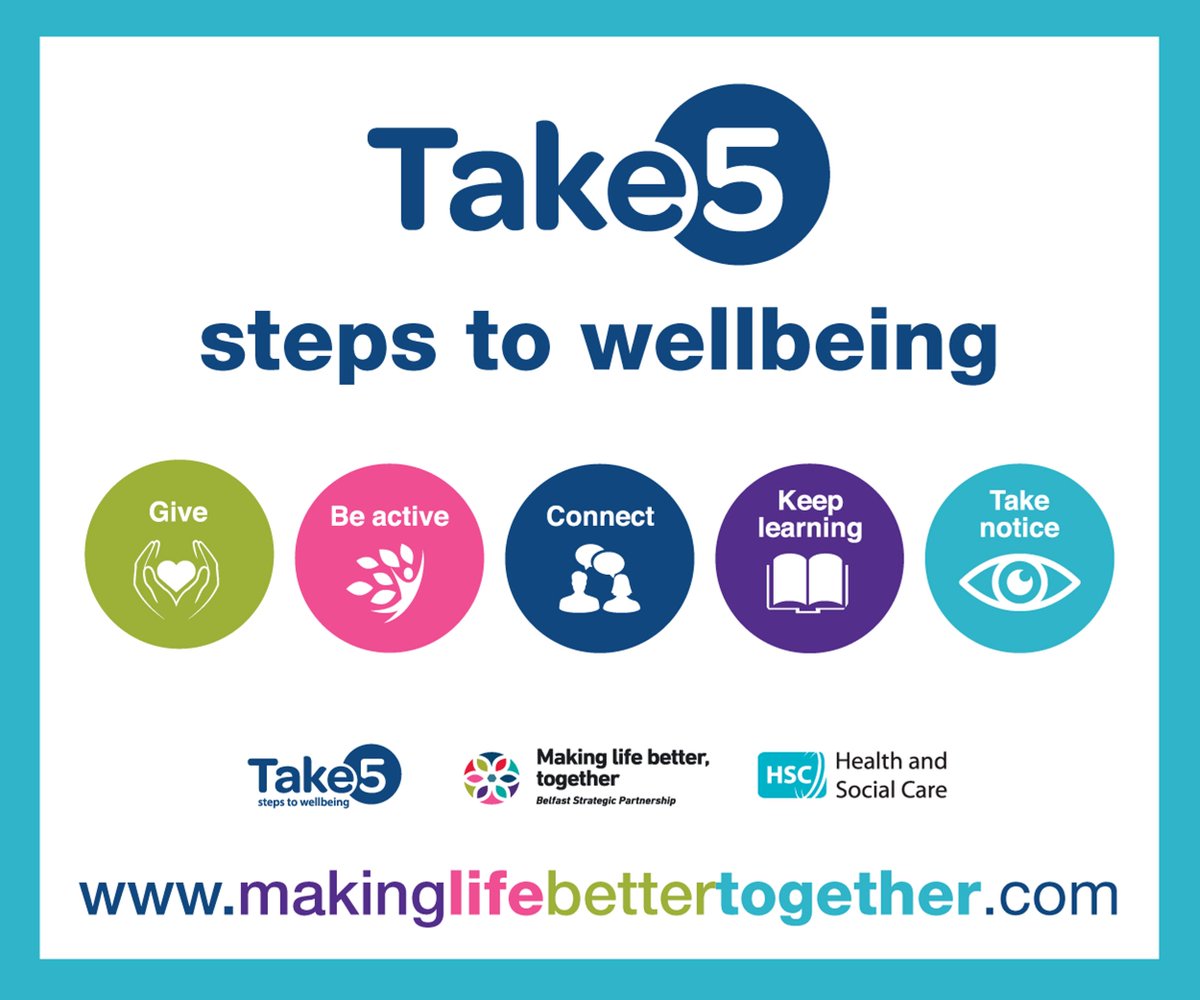Cultivation of Mental Wellbeing
This week, I took part in a mental health first aid course, where the 5 steps to mental wellbeing by the NHS were mentioned. These are a collection of five evidence-based ways to improve a person's wellbeing, designed as a self-help tool for people suffering with depression and/or anxiety.
Immediately, I was interested, given I had been thinking about ways to help those who are suffering with anxiety and depression that went beyond the addition or dose adjustment of anti-depressants. There is clear and evidence-based value in anti-depressants as a risk-reduction strategy for those who are experiencing longstanding or extreme depressive symptoms, but they can sometimes cause emotional blunting which leads people to feel less "human", amongst other side effects. There are also many patients who experience a depressive state attributable to environmental problems - including issues with external monetary, social and health-related factors. In these cases, anti-depressants may help with an individual's coping with external factors - by removing the mental "rut" they find themselves in, but sometimes a patient may still find themselves incapable - which may be a place for self-help strategies to rationalise their wellbeing.
Here is where the five steps may come in handy, to help show patients areas where they could improve their mental wellbeing - to improve their capacity to deal with external factors. They are shown below:

- The first factor is to give - focusing on giving to others - whether this be through a job serving others, through volunteering, through charity, or through helping others in any way.
- The second is to be active - maintaining a level of exercise that you find enjoyable.
- The third is to connect with others - mainly focusing on in-person interaction, as this is the most fruitful.
- The fourth is to keep learning - trying new things and having varied experiences, and to work on improving in hobbies or crafts.
- The fifth is to take notice - or in other words, to practice mindfulness, and to consciously engage with your five senses.
It is clear that modern society works contrary to these factors, phones and social media take away from meaningful connection, activity and mindfulness, whilst learned helplessness teaches us to be anti-intellectual and to be paranoid of others, stopping us from giving. The elderly lose their connections, activity, hobbies and are stuck with giving to their grandchildren or through door-to-door charities, desperate to give happiness to both themselves and to witness happiness. Those with mobility issues or musculoskeletal issues may see a similar presentation.
Without a good foundational mental wellbeing, it is easy to allow external stressors to pile up, and for perceptions of the world to sour. Opposing this, a better mental wellbeing can lead to action against external stressors in a more effective way. This is why it is so important for communities/health boards to offer ways to connect or exercise for those with impairments in mobility, and why spending time in nature, or away from a barrage of content can lead to better mental health outcomes.
I don't feel it necessary to say "This is nuanced and some people may not find much benefit from these steps." Many patients with depression and complex anxiety conditions like OCD/PTSD/GAD need pharmacological treatments and specialist therapies, however, their baseline functioning will most likely be impaired without these fundamental steps to mental wellbeing. Additionally, i'm sure this isn't a ground-breaking discovery to many patients, however, it is a useful way of "checking off" what a patient is doing to nourish their mind. There is also a lot of evidence surrounding how diet plays a role in mental wellbeing, which, not to diminish its importance, is useful - especially given a healthier diet can lead to weight loss leading to indirect impacts on activity and the ability to physically get out and connect with others, but I believe that many people have started to fixate on diet as a fix-all for mental and physical issues. It is integral to look for indirect improvements in someone's five steps to mental wellbeing before drawing correlation to their change in diet. They may have started going out more, they may be connecting with others over a mutual change in diet, or they may be finding enrichment in learning about themselves. This line of thinking applies to almost every holistic medicine, and is often ignored.